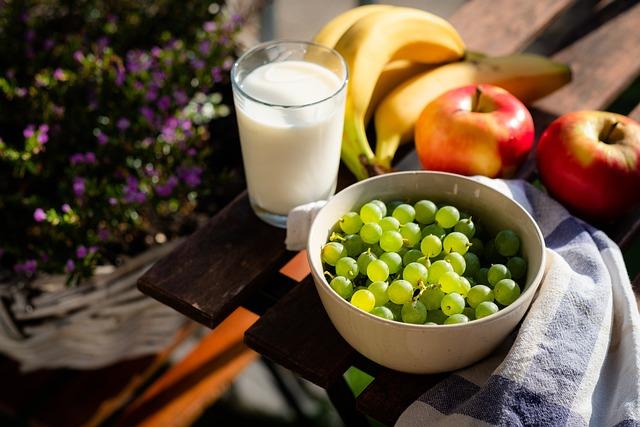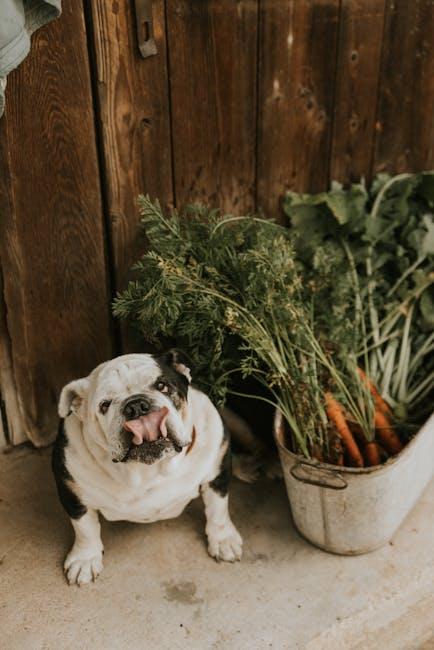As our beloved canine companions age, their needs begin to change, often in ways that require careful attention and thoughtful adjustments. Just as we adapt our lifestyles to accommodate the natural progression of time, so too should we consider the unique needs of our senior dogs, especially when it comes to their diet. Ensuring that our furry friends maintain optimal health and vitality in their golden years is a responsibility filled with love and care. This article will guide you through the considerations and benefits of adjusting your senior dog’s diet, offering insights into why their nutritional needs may differ from those of younger dogs and how you can make informed decisions to support their well-being. Whether you are a seasoned pet owner or new to the joys of caring for an older dog, understanding the nuances of senior canine nutrition is a vital step in providing the best possible care for your loyal companion.
Understanding the Nutritional Needs of Senior Dogs
As our beloved canine companions age, their nutritional requirements evolve to support their changing bodies and maintain their quality of life. A diet tailored to senior dogs can make a significant difference in their overall health and vitality. Here are some key factors to consider:
- Caloric Needs: Senior dogs often have reduced energy levels, leading to a decrease in their caloric needs. It’s crucial to adjust their diet to prevent weight gain while ensuring they still receive adequate nutrition.
- Protein Content: Older dogs may benefit from a diet higher in protein to support muscle maintenance and repair. However, it’s essential to ensure that the protein is of high quality and easily digestible.
- Joint Health: Ingredients like glucosamine and chondroitin can be beneficial in supporting joint health, which is often a concern for aging dogs.
- Digestibility: Senior dogs might experience changes in digestion, so choosing foods that are easily digestible can help in nutrient absorption and overall digestive health.
- Antioxidants: Incorporating antioxidants into their diet can help combat oxidative stress and support a healthy immune system.
By understanding these nutritional needs, you can help ensure your senior dog remains healthy and happy in their golden years. Always consult with your veterinarian to tailor a diet plan that best suits your dog’s individual health needs and lifestyle.

Tailoring Diet Plans for Aging Canines
As our furry friends age, their nutritional needs evolve, requiring us to consider more tailored diet plans. Senior dogs often experience changes in metabolism, joint health, and dental care needs, which can be addressed through specific dietary adjustments. A well-rounded diet for an aging canine should focus on providing essential nutrients that support overall health and vitality.
- Protein: High-quality protein sources are crucial to maintaining muscle mass, as older dogs can lose muscle tone more easily.
- Fiber: Increased fiber can aid in digestion and help manage weight, keeping your senior dog fit and healthy.
- Omega-3 Fatty Acids: These can support joint health and reduce inflammation, offering relief from arthritis symptoms.
- Antioxidants: Vital for boosting the immune system and combating the effects of aging.
- Low Calories: Since older dogs are less active, it’s important to manage calorie intake to prevent obesity.
Always consult with your veterinarian to tailor a diet plan that meets the specific health needs of your senior dog, ensuring they enjoy their golden years with optimal health and happiness.

Choosing the Right Ingredients for Your Senior Dogs Health
As our canine companions age, their nutritional needs begin to shift, and it’s important to adapt their diet to support their health and vitality. When selecting ingredients for your senior dog’s meals, focus on high-quality proteins such as chicken, turkey, or fish, which help maintain muscle mass. Incorporate complex carbohydrates like brown rice or sweet potatoes to provide a steady energy source without unnecessary spikes in blood sugar levels.
Consider adding omega-3 fatty acids from sources like fish oil or flaxseed, which can aid in reducing inflammation and promoting joint health. Additionally, ensure your furry friend receives an adequate amount of fiber to support digestive health; ingredients such as pumpkin or green beans are excellent choices. Keep an eye on portion sizes and caloric intake to prevent obesity, a common concern in older dogs. By carefully selecting these nutritious ingredients, you can help ensure your senior dog enjoys a healthy and comfortable golden age.
- High-quality proteins: Chicken, turkey, fish
- Complex carbohydrates: Brown rice, sweet potatoes
- Omega-3 fatty acids: Fish oil, flaxseed
- Fiber-rich foods: Pumpkin, green beans

Practical Tips for Transitioning Your Senior Dog to a New Diet
Transitioning your senior dog to a new diet can be a smooth process with the right approach. Begin by gradually mixing the new food with the current one, increasing the proportion of the new diet over a week or two. This helps to avoid digestive issues and allows your dog to acclimate to the new flavors and textures. Observe your dog’s reaction during this period, noting any changes in behavior or stool consistency, and adjust the transition timeline if necessary.
- Consult your vet: Before making any dietary changes, it’s wise to seek guidance from your veterinarian to ensure the new diet meets your dog’s specific health needs.
- Choose high-quality ingredients: Opt for foods that are rich in nutrients but low in calories to maintain a healthy weight.
- Monitor hydration: Ensure your senior dog is drinking plenty of water, especially if the new diet is higher in protein.
- Be patient: Give your dog time to adjust and be attentive to their preferences and comfort.

